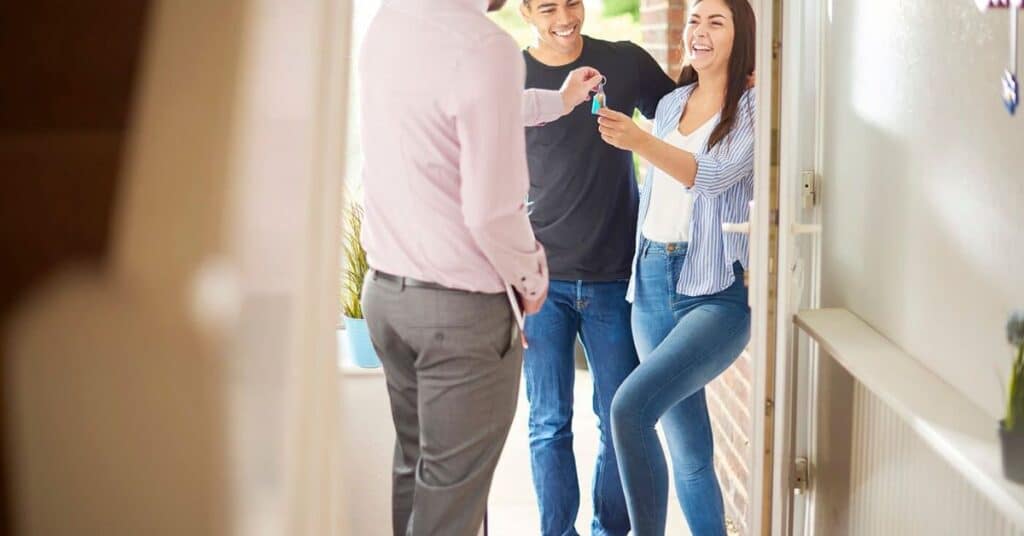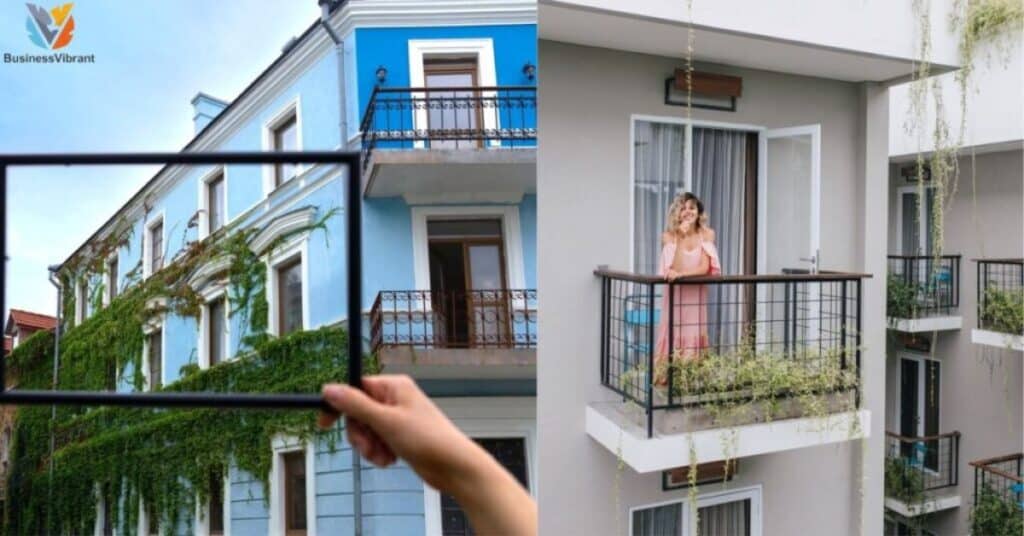Understanding your rights as a tenant includes knowing whether you have the right to open windows in rented properties. It encompasses legal provisions regarding ventilation, comfort, and health standards within your leased living space.
Curious about your rights as a tenant regarding window usage in rented properties Wondering if you’re entitled to open windows for ventilation Let’s explore the key rights you have as a tenant concerning window access in your rented space.
In rented properties, tenants often wonder about their rights regarding window usage. Understanding these rights is crucial for maintaining a comfortable living environment.
Generally, tenants have the right to open windows for ventilation, but it’s essential to familiarize yourself with your specific rights outlined in your lease agreement. Consulting with your landlord or researching tenant rights can provide clarity on this matter.
Tenant Rights
Tenants have certain rights granted to them by law, ensuring fair treatment and protection while occupying a rented property.
These rights encompass various aspects of tenancy, including the right to a habitable living environment, privacy, and freedom from discrimination.
Additionally, tenants have the right to enjoy the premises without undue interference from the landlord, as well as the right to timely repairs and maintenance.
Window Usage
The usage of windows in a rented property is often a subject of concern for tenants. Generally, tenants have the right to open and close windows to regulate ventilation and indoor airflow.

However, it’s essential for tenants to use windows responsibly and adhere to any guidelines outlined in their lease agreement. Failure to do so could result in damages or disputes with the landlord.
Rented Property
Rented property refers to a dwelling or premises that a tenant leases from a landlord in exchange for rent payments.
Tenants have the right to occupy the rented property as their primary residence during the lease term, provided they adhere to the terms and conditions specified in the lease agreement.
It’s important for tenants to understand their rights and responsibilities regarding the rented property to ensure a positive tenancy experience.
Ventilation Rights
Tenants have the right to adequate ventilation in their rented property to maintain a healthy and comfortable living environment. This includes the ability to open windows for fresh air circulation and to prevent the buildup of moisture and pollutants indoors.
Landlords are generally responsible for ensuring that the property has proper ventilation systems in place and that tenants can access windows for ventilation purposes.
Lease agreement
A lease agreement is a legally binding contract between a landlord and a tenant that outlines the terms and conditions of renting a property.
It specifies important details such as the duration of the lease, rent amount, security deposit, and rules governing the use of the property. Additionally, the lease agreement may include clauses related to maintenance responsibilities, pet policies, and restrictions on alterations to the property.
Understanding the lease agreement is crucial for both landlords and tenants to ensure a smooth and mutually beneficial tenancy.
Tenants should carefully review the terms of the lease before signing to understand their rights and obligations. It’s essential to clarify any uncertainties or concerns with the landlord before entering into the agreement to avoid misunderstandings later on.
Once signed, the lease agreement becomes a legally binding document, and both parties are expected to adhere to its terms throughout the duration of the lease.
Landlords must provide a copy of the signed lease agreement to the tenant for their records. Any amendments or modifications to the lease agreement should be documented in writing and agreed upon by both parties to maintain clarity and transparency.
In the event of disputes or disagreements regarding the lease agreement, tenants and landlords may seek resolution through mediation, arbitration, or legal proceedings. However, prevention is always preferable to resolution,
So both parties should strive to communicate openly and address any issues or concerns promptly to maintain a positive landlord-tenant relationship.
Read this blog:https://businessnexa.com/insights-into-3-siblings-owning-property-together-in-2023-challenges-solutions-and-beyond/
Tenant responsibilities
Tenants have certain responsibilities when renting a property, which are essential for maintaining a safe and comfortable living environment.
One of the primary responsibilities of tenants is to pay rent on time as specified in the lease agreement. Timely rent payments ensure that landlords can cover expenses related to property maintenance and management.
Additionally, tenants are responsible for keeping the rented property clean and in good condition. This includes regular cleaning and maintenance tasks such as vacuuming, dusting, and reporting any maintenance issues to the landlord promptly. By taking care of the property, tenants can help preserve its value and functionality.
Tenants also have a responsibility to abide by the rules and regulations outlined in the lease agreement. This may include restrictions on activities such as smoking, pet ownership, or subletting. Violating these rules could result in lease termination or other consequences outlined in the agreement.
Finally, tenants have a responsibility to respect the rights and privacy of their neighbors. This involves maintaining a reasonable level of noise and being mindful of shared spaces such as hallways and common areas. By fulfilling their responsibilities, tenants can contribute to a harmonious living environment for themselves and their neighbors.
Landlord obligations
Landlords have several obligations to fulfill when renting out a property to tenants. One of their primary responsibilities is to ensure that the rented property meets certain health and safety standards.
This includes providing a property that is structurally sound and free from hazards such as mold, lead paint, or faulty wiring.

Additionally, landlords are responsible for maintaining essential amenities in the rented property, such as heating, plumbing, and electrical systems.
They must promptly address any maintenance issues or repairs that arise during the tenancy to ensure the tenant’s comfort and well-being.
Landlords also have a duty to respect their tenant’s privacy and quiet enjoyment of the property. This means refraining from entering the rented premises without proper notice except in emergencies and respecting the tenant’s right to peaceful habitation.
Finally, landlords are legally obligated to adhere to anti-discrimination laws and treat all tenants fairly and equally.
They cannot discriminate against tenants based on factors such as race, religion, gender, or familial status. By fulfilling these obligations, landlords can maintain a positive and mutually beneficial relationship with their tenants.
Indoor air quality
- Proper ventilation is crucial for maintaining good indoor air quality.
- Indoor air quality can be affected by factors such as dust, pollutants, and humidity levels.
- Regular cleaning and maintenance of HVAC systems can help improve indoor air quality.
- Indoor air pollutants can contribute to respiratory problems and other health issues.
- Opening windows and allowing fresh air to circulate can help improve indoor air quality.
- Using air purifiers or filters can help remove airborne particles and improve air quality.
- Avoiding smoking indoors and minimizing the use of harsh chemicals can help maintain clean indoor air.
- Proper humidity levels can help prevent mold growth and improve indoor air quality.
- Indoor plants can help purify the air by absorbing pollutants and releasing oxygen.
- Regularly replacing air filters and conducting indoor air quality tests can help ensure a healthy living environment.
Legal provisions
Legal provisions refer to specific laws, regulations, or clauses established to govern various aspects of society, including contracts, property rights, and individual freedoms.
In the context of renting property, legal provisions play a crucial role in outlining the rights and responsibilities of both landlords and tenants.
Legal provisions related to landlord-tenant relationships vary depending on the jurisdiction, but they typically cover essential aspects such as lease agreements, rent payments, property maintenance, and eviction procedures. These laws aim to protect the rights of both parties and ensure fair and transparent dealings in rental transactions.
It’s essential for landlords and tenants to familiarize themselves with relevant legal provisions to ensure compliance and avoid potential disputes or legal consequences.
Landlords must adhere to legal requirements regarding property maintenance, tenant privacy, and eviction procedures, while tenants must fulfill their obligations regarding rent payments, property care, and adherence to lease terms.
By understanding and adhering to legal provisions, both landlords and tenants can maintain a harmonious and lawful landlord-tenant relationship.
Frequently Asked Questions
Do tenants have the right to open windows in rented properties?
Yes, generally tenants have the right to open windows in rented properties for ventilation purposes, unless specified otherwise in the lease agreement.
Can landlords restrict tenants from opening windows in rented properties?
Landlords may impose reasonable restrictions on window usage in rented properties to ensure safety and security, but they cannot unreasonably withhold this right from tenants.
What are some reasons landlords might prohibit window opening?
Landlords may prohibit window opening in certain circumstances to prevent unauthorized entry, safeguard against potential hazards, or maintain the integrity of the property.
Can tenants negotiate window usage rights with landlords before signing a lease?
Yes, tenants can negotiate window usage rights with landlords during the lease negotiation process to ensure clarity and agreement on this aspect of tenancy.
What should tenants do if they encounter issues with window usage rights in their rented property?
If tenants have concerns or encounter issues regarding window usage rights, they should communicate with their landlord to seek clarification and resolve the matter amicably, adhering to the terms outlined in the lease agreement.
Conclusion
In conclusion understanding tenants’ rights regarding window usage in rented properties is essential for maintaining a comfortable and healthy living environment. While tenants generally have the right to open windows for ventilation purposes, it’s crucial to review the lease agreement for any restrictions or guidelines imposed by the landlord.
By communicating with the landlord and negotiating terms during the lease agreement process, tenants can ensure clarity and agreement on window usage rights.
Additionally, tenants should address any concerns or issues regarding window usage promptly with the landlord to seek resolution in accordance with their rights as tenants. Ultimately, being informed about these rights empowers tenants to advocate for their needs and maintain a positive and respectful landlord-tenant relationship.

Alexander K. Barry, an experienced author with five years in business, explores the intricate dynamics of entrepreneurship, management, finance, and innovation through insightful narratives and practical wisdom.







